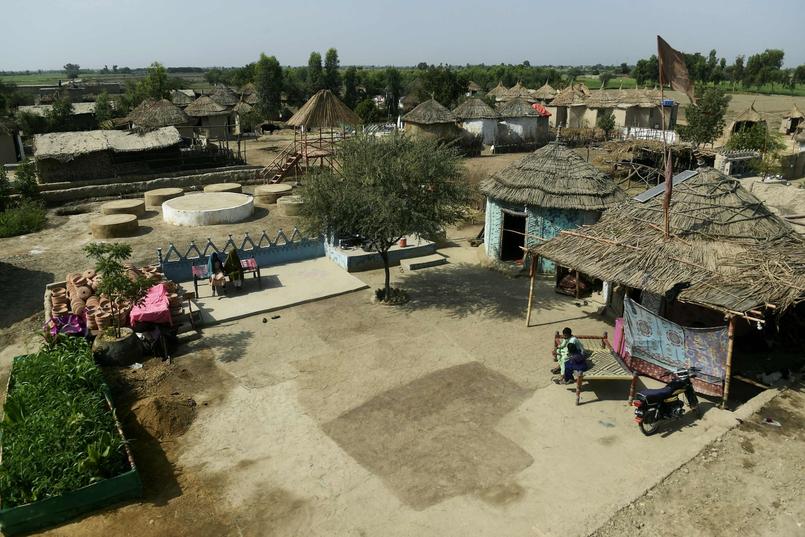Table of Contents
ToggleCurrent environmental challenges
Current environmental challenges are numerous and worrying. Among these are the climate change, ecosystem degradation, loss of biodiversity and widespread pollution. The broadcasts of greenhouse gas continue to increase, exacerbating extreme weather events and endangering life on our planet.
Traditional energy sources, such as coal and oil, are largely responsible for these problems. They contribute to deforestation, land degradation and ocean acidification. It is therefore essential to move towards more sustainable and environmentally friendly solutions.
THE renewable energies emerge as a direct response to these challenges. They offer a multitude of advantages:
- Reduction of emissions CO2 and other pollutants.
- Use of inexhaustible resources such as sun, THE wind and water.
- Creation of green jobs in booming sectors.
- Reduced dependence on fossil fuels.
Innovative technologies, such as solar panels integrated into buildings and wind turbines modern technologies, are transforming our energy landscape. Furthermore, research on nanomaterials and the advanced composites allows you to optimize the use of resources while improving energy efficiency.
Another crucial aspect is energy storage. Advances in lithium ion batteries and energy storage systems enable more efficient management of renewable resources, ensuring continuous power even when the sun isn’t shining or the wind isn’t blowing.
The systems of rainwater recovery, intelligent lighting and heating methods using sustainable resources are all initiatives that promote energy autonomy and reduce the environmental footprint of buildings.
Faced with these challenges, it is imperative to mobilize stakeholders in society. Everyone has a role to play, from architects to consumers to businesses, to support the transition to a more sustainable future. This change requires collective awareness to encourage the adoption of innovative practices and materials.
Climate change and its impacts
The environmental challenges we face are increasingly pressing. Climate change manifests itself in rising temperatures, extreme weather events and a profusion of devastating natural phenomena. Every year, millions of people suffer the consequences of this crisis, threatening biodiversity and food security.
The impacts of climate change are numerous and varied:
- Sea level rise leading to flooding of coastal areas.
- Desertification of certain regions making agriculture impossible.
- Ocean acidification affecting marine life and the food chain.
- Massive movement of populations in search of habitable land and resources.
Faced with these challenges, the search for sustainable solutions is essential. THE renewable energies emerge as a promising answer. By harnessing inexhaustible resources such as sun, wind and water, we can reduce our dependence on fossil fuels. These alternatives can also reduce our carbon footprint and mitigate the devastating effects of global warming.
Innovative technologies, such as integrated solar panels in buildings, rainwater harvesting systems or even the wind turbines domestic workers, show that we have the means to act. The use of ecological materials and sustainable construction processes can also transform the way we build and design our cities.
We have solutions at our disposal that are just waiting to be adopted to enable a greener and more sustainable future. Collective engagement and increased awareness are crucial to driving change on both a personal and professional level. Together, we can collaborate for a world where renewable energy plays a central role in the fight against climate change.
Dependence on fossil fuels
The planet faces major environmental challenges which require an urgent and innovative response. Climate change, pollution and loss of biodiversity affect every aspect of our lives. Scientists are unanimous: it is crucial to act quickly to minimize the impacts of these problems. The adoption of green and sustainable solutions is more than ever a priority. THE renewable energies emerging as a key solution, but their potential is still underexploited.
The dependence on fossil fuels remains one of the greatest obstacles to the advent of a sustainable future. This dependence not only contributes to greenhouse gas emissions, but also to the depletion of natural resources. The energy, transport and industrial sectors continue to emit alarming amounts of CO2, exacerbating the climate crisis.
The data is alarming:
- Fossil fuels represent more than 80% of global energy consumed.
- Each year, approximately 36 billion tonnes of CO2 are emitted by the burning of fossils.
- The impacts of this dependence are visible: increased storms, rising oceans, and loss of biodiversity.
Faced with this observation, the question arises: how can we succeed in the energy transition towards sustainable solutions ? Innovation in the renewable energy sector, such as wind, solar or hydroelectric, is essential. These technologies not only provide a viable alternative to fossil fuels, but also create jobs and promote local economic development.
To effectively respond to current challenges, it is imperative to integrate these technologies into existing structures while promoting increased awareness and concrete actions at an individual and collective level.
















